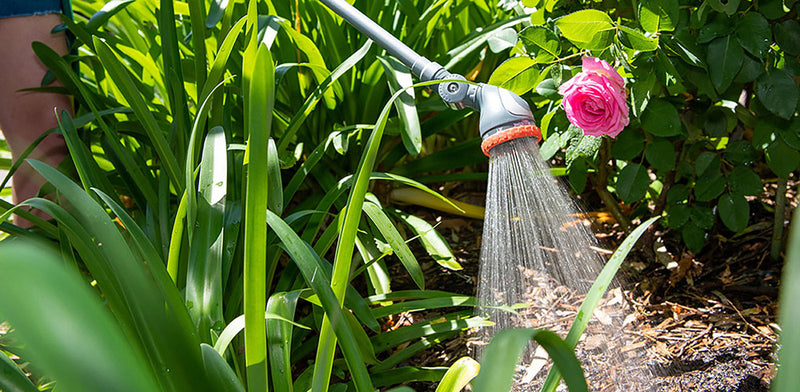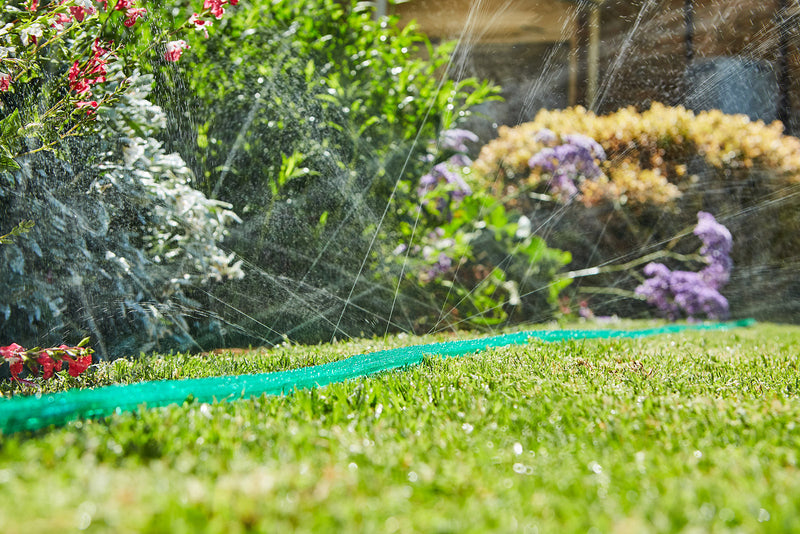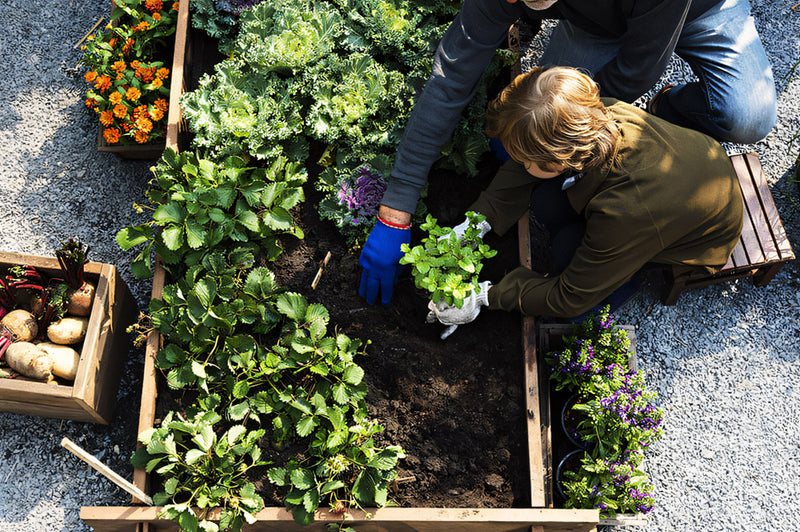

How to make your garden (more) water efficient this summer
Australian summers are notorious for 40°+ heatwaves. Keeping your plants alive and grass lusciously green can feel like a constant battle. But there are ways to maintain that gorgeous garden without wasting water (and money).
Check out these five tips to help make your garden more water efficient this summer.
1. Keep the top layer of soil moist
It's important to reduce evaporation and prevent the root system cooking. Applying a thick layer of mulch onto your plant beds will prevent the soil from drying out and becoming water-repellent. Chopped sugar cane, pea straw, gravel, stones, bark chips and sawdust are all useful, plus they encourage worms and reduce weeds.
2.Install a drip irrigation system
Installing drip tube and/or drippers tallows water to be distributed slowly and accurately to each plant. Pope's Drip Eze drip tube is a precise, low flow irrigation product best suited for garden beds as it can be covered with mulch to deliver water to the root system and reduce water loss from wind or evaporation. Check out our DIY videos on YouTube or online readable guides for more information on how to plan and install drip systems in your garden.
3.Consciously choose your plants (and the positioning)
Consider planting natives, succulents, grasses and trees that have lower water needs away from the main living space in your backyard. This leaves space for any feature plants to be situated closer to the house, especially if they require a bit more attention. This will also make them the focal point when you're entertaining.
4.Water plants when it's not hot
On those notoriously hot, summer days, try to water after the hottest part of the day to give your plants the best chance of surviving.
5.Choose hardy plants
Succulents are hardy and don't need a lot of water. There are many different types to choose from and are easy to propagate no matter what the season. As a general rule, any plant that grows slowly needs less water. The other advantage is that slow-growing plants need less pruning and maintenance.
If you would like to know more about drip irrigation for your garden, visit Pope Irrigation for a step-by-step guide and DIY installation guides and start planning your irrigation project.
